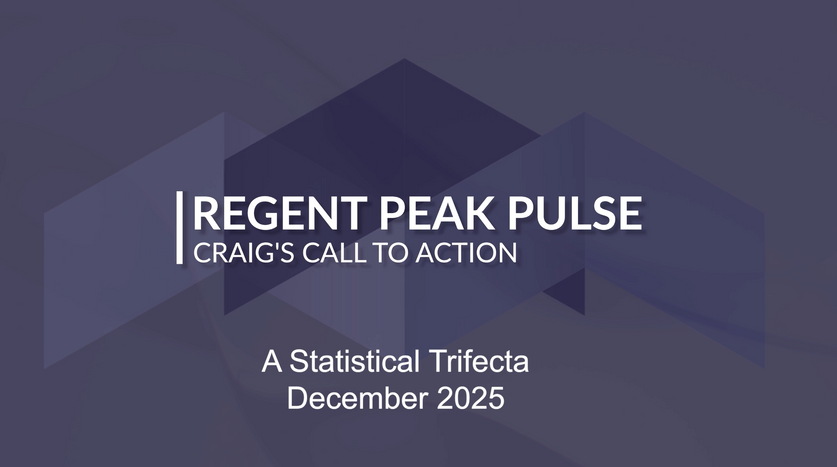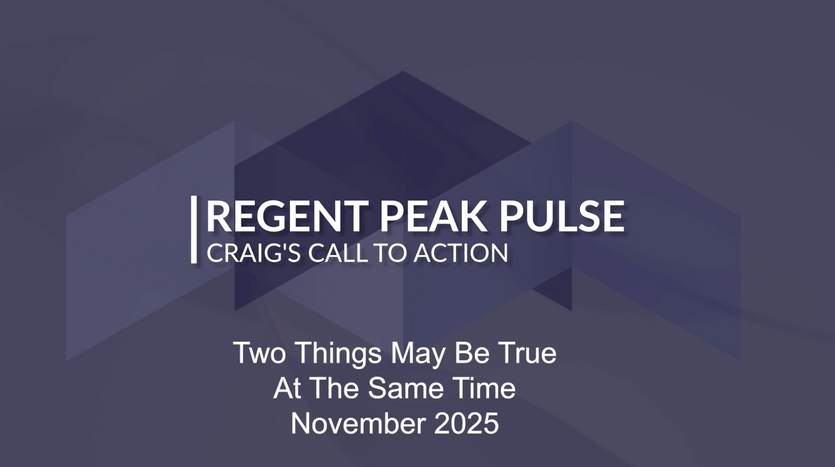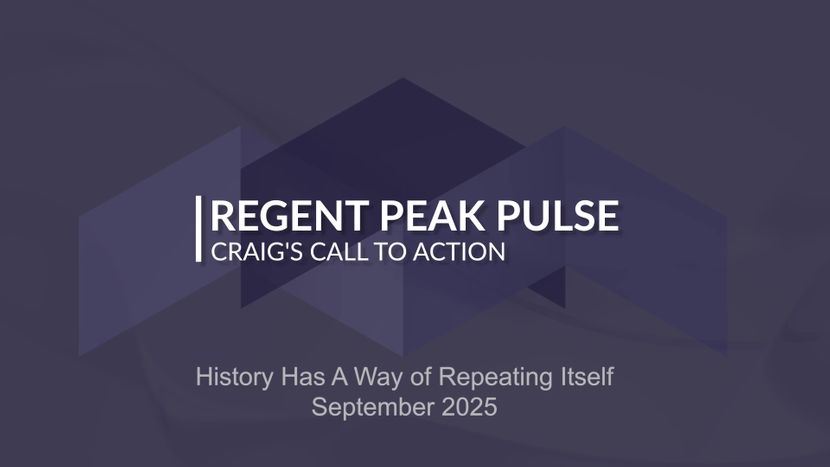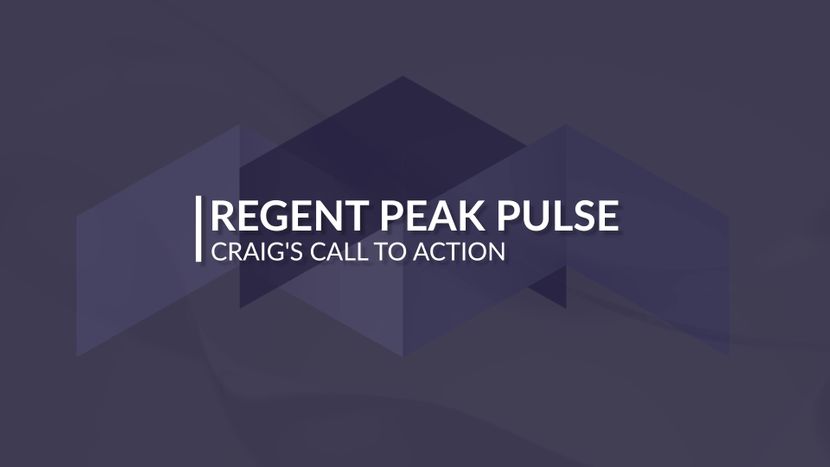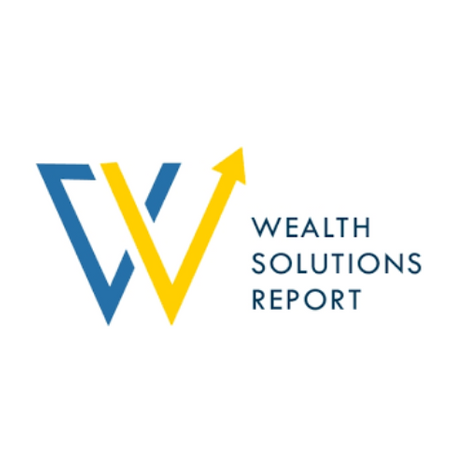Commentary
As part of our fiduciary approach to considering your best interests, we provide regular updates and news items about our firm, as well as information and commentary we deem to be relevant and worth your time. We invite you to contact us about any of these articles and releases. We’re only too happy to answer your questions.
Regent Peak Pulse: Craig's Call to Action, "A Statistical Trifecta"
Craig Robson, CFP®, CIMA®, CDFA®
Have you heard the saying "You have to spend money to make money"? As a business owner, I can attest there's truth to this statement with an important caveat: responsible spending should fund future growth opportunities. Irresponsible spending leads to unpleasant scenarios. Unfortunately, most governments continue promoting reckless spending, which over time reduces consumers' purchasing power via inflation. One of the best ways consumers can protect themselves is to ensure a portion of their investments are allocated toward riskier assets, per their investor risk profile such as equities, private investments, digital assets, and bullion like gold and silver What's the benefit? Simply put, over time these riskier assets' growth rates have outperformed inflation, providing greater purchasing power opportunities.
In recent research analytics, I came across a somewhat rare statistical anomaly. You see, it's highly uncommon for oil prices, the US dollar, and the 10-year treasury yield to be near their respective 52-week lows at the same time. Why does this matter? Because over the next 12 months, returns for equities are strong, especially when each of these are in the bottom decile of their historical readings. Since 1984, when all three of these indicators are near their 52-week lows, 12 months later the S&P 500 was positive approximately 80% of the time with an average return of just over 10%. Even better, when those same three indicators are in the lowest decile of historical readings, the numbers increase to just shy of an 89% chance of being positive one year later, with the S&P providing a 17% average return. Here's my point: if you're looking for a catalyst or trend to allocate toward equities -- one of the riskier assets within your profile that I just referenced – well here you go! (page 9-10 Bespoke Report Dec 5, 2025 – covers all facts in this paragraph)
moreCraig's Corner: Problem Solvers
In the fall of 2020, I remember reading about a massive wildfire in the Sierra National Forest in California. Wildfires are sadly not unusual, but the strategy used to stop this one stood out. Fire crews set a twenty-five-mile backfire, one of the largest in the state’s history, to burn toward the main fire and stop its advance when nothing else was working. I was impressed by the ingenuity of the approach and learned it’s a highly technical method rooted in thousands of years of firefighting experience, ultimately giving rise to the phrase “fight fire with fire.”
Earlier this year, many investors felt a similar sense of uncertainty when the capital markets dropped sharply following the administration’s announcement of broad tariffs. Investors were understandably concerned. I shared with clients that in my 31 years in this industry, I had never seen this exact scenario, nor had anyone else, and that we would take the necessary time to assess rather than react impulsively. I was struck by how quickly many economists projected the worst-case outcomes: recession, surging inflation, and continued market deterioration. It left me wondering what past experiences they were relying on to make those predictions so quickly.
moreRegent Peak Pulse: Craig's Call To Action, "Two Things May Be True At The Same Time"
Craig Robson, CFP®, CIMA®, CDFA®
The two most common investment topics I continue to be questioned about in 2025 are Artificial Intelligence and digital assets. Coincidentally, my Chief Compliance Officer informed our firm of the exam priorities this year. You guess it, top on that list: AI and digital assets. So, look, two things can be true at the same time: one, these are higher risk / higher demand strategies which the regulators are focusing on, and two, investors are very interested in learning about and potentially owning in their portfolios. From this advisor’s perspective, times like this feel like a balancing act — navigating the intersection between investors’ FOMO over the next hot trend and regulators’ growing unease about what could become the next market risk. Here'ss my recommendation, which is consistent with any new investment consideration: do your diligence so you are making an informed decision, and if you choose to invest, start with a smaller allocation and monitor how it performs within both your overall portfolio construct as well as through market cycles. You may be thinking why not invest a larger and more concentrated position? As a friend of mine who owns a farm here in Atlanta likes to remind me: "Pigs get fed, yet hogs get slaughtered."
moreRegent Peak Pulse: Craig's Call to Action, "No Shutdown in this Economy"
Craig Robson, CFP®, CIMA®, CDFA®
With the unfortunate temporary government shutdown starting on October 1, those of us who are dependent on traditional government provided financial and economic data outlets must now rely on alternative sources to assist us in formulating our overall recommendations and thesis. I'd like to share just a few of the following positive indicators regarding the overall performance of the economy:
First off, let's discuss the health of the consumer: spending continues to grow 4.6% year on year through September [1], the year on year same store sales growth (tracked weekly) are also near 5% [2], and auto sales came in at $16MM Seasonally Adjusted Annualized Rate, which is relatively strong compared to the last few years [3]. Why is that important? The consumer is the "holy grail" of the economy and historically accounts for approximately 70% of total economic output. [4]
Second, let's check out manufacturing in the US. We have two regional manufacturing indices, Philly and NY, which just released their data in mid-October. Their latest orders were the highest since February and a big improvement since September. [5] Here's my point: A robust manufacturing sector is often correlated with a strong, innovative, and resilient economy, even if it’s not the largest sector.
moreRegent Peak Pulse: Craig's Call to Action, "History Has a Way of Repeating Itself"
Craig Robson, CFP®, CIMA®, CDFA®
One of the most dangerous phrases in the investment community is “It’s different this time”. Looking back on my career in the wealth management industry, a few examples come to mind which validate this statement:
The dot.com era of the late 90’s in which institutional and individual investors were purchasing start-up companies at significant price multiples even though most dot.com companies had no earnings and were reporting significant losses. Some argued that actual reported earnings were no longer important. Eventually the bottom fell out, and we now think of that period as the “dot.bom” era.
Or how about no-documentation mortgages in the run-up before the Great Financial Crisis of 2008? Multiple large institutional lenders, as well as smaller community banks, were willing to forgo documentation when underwriting and approving mortgages for consumers. The rationale was the real estate market was hot, there was a competitive lending environment, and standards needed to be relaxed. Eventually the economy turned, a recession began, job losses incurred, mortgage payments were missed, foreclosures happened resulting in empty houses and lawsuits, and lenders taking possession of homes– it was a mess!
more
How to prepare to buy a home in the next five years
stacker
Our very own Elias Crist, Associate Wealth Advisor recently shared with current.com stacker blog various practical steps for building a clear path toward homeownership.
“Once or twice a year, sit down and revisit your net worth, debts and payments, credit score and down payment fund,” Elias suggests. “Your circumstances may change, and that’s okay. The key is to stay committed to your timeline, even if you need to make adjustments.”
As Elias reminds future buyers: “A five-year plan doesn’t require perfection — it just requires direction.”
Read the article HERE
moreRegent Peak Pulse: Craig's Call to Action
Craig Robson, CFP®, CIMA®, CDFA®
Starting this month, I plan to publish a monthly video, which we’re calling “Regent Peak Pulse: Craig’s Call to Action,” about a topic or theme that has caught my attention. The topics or themes will vary, yet mostly will center around some variation of financial, economic, tax, or legislative story which I feel impacts investors. Included in each video I will provide my thoughts on how to address or counter the issue at hand. In closing, I will then mention one topic I am interested in learning about in the next month, although acknowledging I may not speak to this topic during my next video. So, let’s get started!
Imagine you are an investor, and you purchase shares in a stock that you have been impressed with due to the company’s quarterly earnings results. Each quarter you read up on the quarterly results issued by the company, which in turn provides you with confidence to invest more. Fast forward to 2 years later and this same company announces that they are lowering their previous earnings results which causes the stock price to decline precipitously. How would that make you feel? If this was an honest mistake, at a minimum, it begs of incompetency in the company and leadership team. If done intentionally, lawsuits and potential criminal charges would be levied against that same leadership team. How is the hypothetical any different from the Bureau of Labor & Statistics’ most recent monthly jobs report revisions for May and June that shaved 254,000 jobs from previous announcements [1]? Let’s put politics aside, as it happens in many administrations under different political party leadership. For example, in the 2024 Bureau of Labor Statistics annual report last August, they reduced estimates of predicted jobs by 818,000 jobs, which had been previously announced – really! [2, 3]
moreMarket Rebounds Are Happening Fast: Should You Buy the Dips? A Financial Planner's Guide
Kiplinger
Volatility is part of investing – but in recent years, markets have been rebounding faster than ever. In his recent piece for Kiplinger, our CIO Nathan Hoyt breaks down why rebounds are moving at “warp speed” and what that means for long-term investors.
From the COVID crash’s record-setting comeback to April’s tariff-driven volatility, markets are bouncing back in weeks instead of years. Nathan points to four key drivers:
- Instant information: News spreads (and reactions happen) in seconds.
- Cash on the sidelines: $7 trillion ready to re-enter the market when valuations drop.
- Fed intervention: A history of stepping in fuels investor confidence.
- Experience: Investors have seen recoveries happen again and again.
For those with the right risk tolerance, these dynamics can make systematic investing during downturns even more compelling — turning short-lived pullbacks into opportunity.
As Nathan notes, “Patience and a clear plan can be powerful tools — especially for investors who are willing to stay calm, stay invested and, when the moment is right, buy the dip.”
moreAlternative Investments in 401(k)s: Why Advisors Have Mixed Feelings
Barron's Advisor Planning Strategies - The Big Q
Our Founding Principal and Managing Director, Craig Robson, recently spoke with Steve Garmhausen, weighing in on the administration’s push to include private equity, private credit and digital assets in 401(k) plans.
While “the more options and the more choices we all have as investors, the better”, Craig notes that most retirement-plan participants aren’t doing appropriate due diligence on private assets — they’re influenced by headlines, past returns and conversations in the break room. That’s where the real risk lies.
Craig emphasizes the need for “guardrails” — ensuring alternative investments are diligenced by an experienced investment committee and introduced thoughtfully to retirement plans, perhaps as part of managed strategies like total return funds or target-date funds with set allocations.
Read the article HERE
more'Independence Series': Staff up before taking off
InvestmentNews
Ahead of the 4th of July holiday, we’re taking a moment to reflect on Regent Peak's own journey to independence.
In the latest installment of Gregg Greenberg’s InvestmentNews’ ‘Independence Series’, our Founding Principal and Managing Director Craig-Robson shares how we navigated launching our own firm in 2019—and what’s fueled our growth since:
- Building out a diversified investment platform—including private equity, credit, real estate and digital assets
- Leading with culture by creating a workplace where team members are supported as people first
- Hiring ahead of demand to ensure sustainable growth without sacrificing service
- Using technology intentionally to stay nimble and meet the needs of an increasingly complex client base
Craig also explores how independence has allowed us to deepen relationships by leading with meaningful conversations—centered not on products, but on client priorities and long-term goals.
Read the article HERE
moreCraig's Corner - Enjoy the Ride
In May I attended a few high school graduation events here in metro Atlanta. Gazing across the crowds, I've witnessed young adults with much promise, excitement, and uncertainty behind their innocent smiles. I wanted to reach out and say, "Follow your instincts! Be bold! Have fun! Take some chances!" In my mind, those opportunities include things like living in a different country for a few years, asking a boss for a raise, starting your own business, accepting an invitation to speak in front of a large audience, investing when the markets are volatile or uncertain, or so many other brave actions. I’d like to ask, “What do you have to lose?” I would like them to understand that the experiences gained through these efforts are typically priceless.
For example, consider investing when the markets are volatile. April this year ended up being just the seventh time that the S&P 500 has rallied back 10%+ to end a month after trading down 10%+ at its intra-month low. [1] In the year following all six of those occurrences, it was higher every time for an average gain of 22%.[1] The advice I share with our relationships: don't focus on the average return of 22%, focus on the trend (i.e., positive returns the following year). Yet guess what - there were still some individuals who were hesitant to invest in April, only to be ready to invest in mid-May when the markets had fully recovered.
moreThe Pros and Cons of the PE Secondaries Market for Advisory Clients
Wealth Solutions Report
With endowments like Yale and Harvard considering selling some or all of their private equity holdings to the secondaries market for enhanced liquidity, our Founding Principal and Managing Director Craig Robson weighed in on how advisors should be approaching PE secondaries.
Increased turnover in private equity has expanded the opportunity set, and Regent Peak continues to have strong conviction in the role that secondaries can play in an overall portfolio construct.
However, investors should fully understand what they own and why they own it. Craig notes that secondaries generally have different fee structures than public investments and typically may not be used as collateral sources for lending facilities. Advisors also need dedicated resources to diligence and monitor them—and must be prepared to educate clients on both the pros and the tradeoffs as part of a broader allocation strategy.
Read the article HERE
more'Sell in May and Go Away'? Wealth advisors say, maybe not
InvestmentNews
Each spring, the old investing adage “Sell in May and go away” starts making its rounds. But does seasonal market timing actually hold up, and is it worth the risk of stepping out of the market? Our CIO Nathan Hoyt doesn’t think so.
“If you sell in May, what do you buy that outpaces the historical 3 percent annualized returns until October? When October arrives, risk doesn’t magically disappear, even if you are disciplined enough to re-invest,” Hoyt said. “Seasonality trends are easy to spot and thus a tempting trap that investors fall into thinking they can time the market, unlike the rest of us. I wouldn’t ask my clock or my calendar to predict the future.”
Read the article HERE
moreHow Estate Plans Are Changing Under the Trump Administration
The Daily Upside
Estate planning isn’t a “set it and forget it” process – especially in times of political change. With recent tariff news signaling significant policy shifts from the new administration, potential reforms to the Tax Cuts and Jobs Act could be next in line.
In this piece our Founding Principal and Managing Director, Craig Robson, explains why advisors and clients should brace for potential changes to estate tax policy. By spotlighting tools like multigenerational education, scenario planning and tax-smart gifting, Craig encourages advisors to reassess financial plans now and take steps to help safeguard client wealth and legacy.
Read the article HERE
moreBonds, CDs, Annuities? 10 money pros on exactly what 'safe-haven' investments to consider now
MarketWatch
“While there is nothing safe about the stock market, those with long term investment horizons that buy into these types of volatile markets have historically grown their wealth, and despite the reasons for the sell-off feeling quite scary each time, the best investors consistently buy more risk assets in ugly environments.” He adds that “if tariffs truly are more seeds of inflation, 4.4% is unlikely to keep up with rising costs, even if interest rates remain the same. Using more esoteric strategies like structured notes or private investments can provide a portfolio with less volatility if not higher returns, yet the longer time frame and illiquidity of these types of investments should be considered before selection.” -Nathan Hoyt, CIO
Read the article HERE
moreAre REITs back?
InvestmentNews
Is this the end of the Magnificent 7?
InvestmentNews
What Trump's tariffs mean for markets
Reuters
With new tariffs now in effect, our CIO Nathan Hoyt weighed in on how tariffs are simply a policy tool - neither inherently good nor bad, but defined by their intended use. He also breaks down their potential economic and trade impacts:
"Tariffs could be a terrible policy mistake, leading to anti-free trade (if you like that perspective), or it could be necessary economic medicine to bring back manufacturing to the U.S. and negotiate better terms for the U.S. (if you like this one)."
Ultimately, Nathan notes that the true impact of tariffs will only be clear in hindsight - and they shouldn't impact your investment strategy. While tariffs may create short-term noise, long-term investors should stay focused on diversifying across multiple asset classes.
Read the article HERE
more5 harsh realities of investing in crypto
Business Insider
With crypto experiencing recent volatility, our Founding Principal and Managing Director Craig Robson reminds investors that strong performance in 2024 doesn’t mean digital assets won’t have a big draw down or pull back like in 2022. He emphasizes that crypto must be suitable for each investor’s risk tolerance.
“Everyone says that they can handle volatility when times are good. When things aren't good, I call it your pain threshold," Craig said. "Upside volatility is great, but the knife cuts both ways."
Read the article HERE
moreUsing tech to help clients through divorce: Show Me Your Stack
FinancialPlanning
Divorce is a challenging time, both emotionally and financially, but the right guidance can help clients navigate it more smoothly. Our Founding Principal and Managing Director Craig Robson gave Rob Burgess a look into how we leverage advice, education and financial tools to help clients find the best path forward amid divorce.
As Craig explained, we help clients outsource the financial aspects of their life so they can focus on what matters most – their families, careers and personal interests. Through strategic planning technology, we provide the clarity and stability they need to navigate difficult transitions like divorce and work toward the best possible outcome.
Read the article HERE
more
The Fed's 'preferred' measure of inflation is core PCE. Do advisors favor it as well?
Gregg Greenberg
In a recent InvestmentNews article, our Founding Principal and Managing Director Craig Robson explained how the monthly CPI index – minus the “owner’s equivalent rent” (OER) component – offers a directional snapshot of inflation and how investors can historically combat inflation with public equities.
In fact, Craig highlights that from 1945 to 2023, investors who held cash lost purchasing power by 90%, while those who invested in the U.S. stock market with dividends reinvested significantly outpaced inflation.
Read the article HERE
moreDisclosures
Regent Peak Wealth Advisors, LLC is registered as an investment adviser with the Securities and Exchange Commission (SEC). The firm only transacts business in states where it is properly registered, or is excluded or exempted from registration requirements. Registration as an investment adviser does not constitute an endorsement of the firm by securities regulators nor does it indicate that the adviser has attained a particular level of skill or ability.
Note, the information provided in this document is for informational purposes only and investors should determine for themselves whether a particular service or product is suitable for their investment needs. This document may contain forward-looking statements relating to the objectives, opportunities, and the future performance of the U.S. market generally. Forward-looking statements may be identified by the use of such words as, but not limited to: “believe”, “expect”, “anticipate”, “should”, “planned”, “estimated”, potential”, and other similar items. These are subject to various factors, including but not limited to general and local economic conditions, changing levels of competition within certain industries and markets, changes in a portfolio’s operations that could cause actual results to differ materially from projected results. Such are forward-looking in nature and involve a number of known and unknown risk, uncertainties and other factors, and accordingly, actual results may differ materially from those reflected or contemplated in such forward-thinking statements. Prospective investors are cautioned not to place undue reliance on any forward-looking statements or examples. None of Regent Peak Wealth Advisors, LLC or any of its affiliates or principals nor any other individual or entity assumes any obligation to update any forward-looking statements as a result of new information, subsequent events or any other circumstances. All statements made herein speak only as of the date that they were made.
Past performance is not indicative of future results. Returns not guaranteed. Not FDIC insured. Not bank guaranteed. May lose value, including loss of principal.
Content should not be construed as legal or tax advice. Always consult an attorney or tax professional regarding your specific legal or tax situation. Regent Peak Wealth Advisors, LLC is not engaged in the practice of law or accounting. This is not a recommendation nor an offer to sell (or solicitation or an offer to buy) securities in the United States or in any other jurisdiction.
Any and all hyperlinks in these publications are provided as a convenience, and we disclaim any responsibility for information, services or products found on websites linked hereto.
Contact Us
Regent Peak Wealth Advisors is a registered independent advisory firm dedicated to working with creators of significant wealth, including multi-generational families, business owners, entrepreneurs, corporate executives, as well as trustees and board directors.

